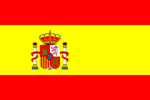Travelling within Europe
Section 1: Purpose and Contents of this page:
This page has been made to provide advice on travelling within Europe while holding a Student Visa
Travelling to Europe is something many students choose to do due to its proximity to the UK.
Student Immigration & Compliance is unable to give personalised visa advice for travelling to and within Europe.
We have, however, provided some useful information below - Please ensure you read through this guidance carefully.
Contents:
If you wish to travel to any of the countries listed below, and have queries regarding visas, you should contact them directly via their webpages or local embassy.
You should:
- Ensure you carry with you proof that you are registered at the University of Warwick - e.g., your Certificate of Status
- Ensure that you know who to contact in the event of any delay to your return to the UK - e.g. your academic department or Wellbeing Support
- Ensure that you know what to do in the event your Passport or BRP/ visa is lost or stolen whilst travelling in Europe.
- Always check UK government's Foreign Travel Advice for the country you wish to travel to and take appropriate precautions.
- Ensure you have sufficient funds to travel AND return to either the UK or your country of residence.
- Think about travel insurance - medical costs in Europe can be expensive if you do not have insurance.
- Find out, before travelling, the locations of your embassies in the countries you wish to travel to should you require consular assistance.
-
If you are travelling for university business, for example, it is part of your course or your academic department is paying for you to attend non-EU conferences, you may be covered by University Overseas Business Travel Insurance.
-
Please contact Insurance Services directly if you require a letter for your visa application.
-
There are 2 types of countries in Europe that you need to be aware of:
Non-Schengen Countries:
These are countries that you have to directly apply to for a visa to legally enter.Certain nationalities may have agreements with these countries that allow you to enter via:
- e-Visa
- Visa on arrival
- Entry via passport only
Schengen Countries:
These are a collection of countries that have abolished their internal borders, for the free and unrestricted movement of people within these countries.
Certain Nationalities may have agreements with these countries that allow you to enter via:
- e-Visa
- Visa on arrival
- Entry via passport only
Please click on the links below to visit the relevant pages for each country:
- United Kingdom
- Republic of Ireland
- Bosnia and Herzegovina
- Georgia
- Montenegro
- Republic of Albania
- Republic of Armenia
- Republic of Azerbaijan
- Republic of Belarus
- Republic of Bulgaria
- Republic of Croatia
- Republic of Cyprus
- Republic of Kosovo
- Republic of Moldova
- Republic of North Macedonia
- Republic of Serbia
- Republic of Turkey
- Romania
- Russian Federation
- Ukraine
The Schengen Visa Scheme allows those wishing to visit certain countries within the EEA (European Economic Area) and Switzerland to travel using only one visa.
Currently, twenty six countries in the EEA have signed up to the Schengen Agreement and together they make up the Schengen space.
You can find a full list of the foreign embassies in the UK at www.gov.uk and search ‘Foreign embassies in the UK’.
- If you are a non-EEA (European Economic Area) national or a spouse/ dependant of an EEA national, you will normally require a Schengen visa if you wish to visit certain countries within the EEA and Switzerland.
- There are exceptions if you hold a 'Residence card of a family member of a Union citizen' and are travelling together for some countries.
- You should check with the Embassy or consulate of the country which you want to travel to whether a Schengen visa is needed.
- If you hold a special / official / UN passport, you may be exempted for certain countries - check with the relevant embassy.
There are three different types of Schengen visa:
- Short Stay Visa
- This is the most common type of visa.
- If you are travelling within the Schengen area as a tourist or attending a conference, and want to visit for up to 3 months in any 6 month period, for single-entry, two-entry or multiple-entry.
- Transit Visa
- If you are going through the international transit area of an airport of a Schengen member state, but are not going to leave this area before you fly on to your next destination.
- Please always check if you will need a visa with the airlines you are flying with OR the authrorites of the country you will be transiting. This is to avoid any last minute delays in case you are required to hold a visa to transit.
- Your airline from port of departure will deny boarding if you require a transit visa but do not hold one
- For examples about who needs a transit visa: https://france-visas.gouv.fr/en/airport-transit-visa
- If you are going through the international transit area of an airport of a Schengen member state, but are not going to leave this area before you fly on to your next destination.
The requirements / documents for each type of visa may vary.
Some of the differences may include:
- Visa fees + Admin fees for the designated visa application centre
- Eligibility criteria
- Documentation needed to make an application
- Country applied to
It is important that you check details with the relevant embassy website.
If you want to travel more than once into the Schengen space during a 3-month period, (i.e. returning to the UK between visits) you can apply for a multiple entry visa. You will need to show evidence of all your travel arrangements and bookings for every planned trip.
- Visiting one country
- You will need to apply to the embassy or consulate of that country.
- Visiting several countries
- You will need to apply to the Embassy of whichever country is your main destination, that is, where you plan to spend the most time.
- Visiting several countries with the Schengen space and you do not have a main destination
- You should apply to the Embassy or consulate of the country where you enter the Schengen space first.
The application process varies for each Embassy.
You need to look at the relevant website or contact the appropriate Embassy to check how you need to apply.
Most of the Embassies representing the Schengen space have their own websites.
The websites should either give full information about applying for Schengen visas, including a down-loadable application form or give contact telephone numbers where you can find more information.
Please be aware that telephone information lines can be costly and often only provide pre-recorded information.
You are advised to look at websites in the first instance.
Different Embassies require you to apply for a visa in different ways.
These include:
- To make an appointment to go in person to their London offices
- To apply at a consulate office closer to home
Around half of the embassies use an agency called VFS or BLS Global to process their visa applications - this may be optional or mandatory.
These agencies will charge an additional fee for their service.
You may also have the option of your travel agent or other agency making the application on your behalf but there will be an additional charge for this.
The application process may take 3-4 weeks. It can take longer for certain nationalities.
We advise you to apply in good time.
Your application cannot be made more than 3 months before your expected travel date, however, you may need to arrange your appointment well in advance.
Urgent appointments are sometimes available in exceptional circumstances, for example if you are going to Europe for an interview.
The documentation needed for your application can vary depending on the embassy you are apply to.
It is important to check on the relevant website as this does vary from one country to another.
It is important to note whether you have enough time remaining on your permission (leave) to remain or enter the UK.
This can vary between 3 and 6 months, so it’s important to check the relevant website of the embassy you are apply to.
Normally you will require:
- A completed application form.
- Your original passport or travel document.
- Passport photographs (different guidelines for different countries).
- Proof of the purpose of your visit (e.g. bookings and reservations) or invitation letter if visiting a family member or friend.
For some countries, this has to be a formal certificate (carefully check the website of the embassy or seek advice).
- Evidence of sufficient funds.
Please note that the acceptable documents and format varies for different countries.
For example: some require three months of UK bank statements, but others may accept travellers cheques.
Embassies will require that you budget and have available a minimum daily amount for your stay.
The amount needed will be on their website.
The amount can vary depending on whether you are staying with a host or in a hotel/paid for accommodation.
- Student status Letter
These are available for self download via e-VisionLink opens in a new windowLink opens in a new window
- Medical insurance covering the dates of your trip - see below.
- Money for the visa application fee.
The way you pay this fee can differ.
The fee should be paid in UK pounds, occasionally Euros - you will need to check the relevant embassy website.
Most embassies require the exact amount in cash but some will accept postal orders.
- You need to take photocopies of all the documents you use in your application.
You may be asked to show these at the border each time you enter a new country in the Schengen area.
It is important to purchase comprehensive medical and personal possessions insurance cover before you travel.
The travel insurance is mandatory to apply for a Schengen visa.
Many travel insurance policies include both.
The minimum amount of cover is (EU EUROS) €30,000 - Please be aware of currency fluctuations when converting to Euros - Oanada Currency ConverterLink opens in a new window
Some countries require the insurance policy to be purchased in the UK.
You will need to show proof of this in your application.
If you are travelling for university business, for example, it is part of your course or your academic department is paying for you to attend non-EU conferences, you may be covered by University Overseas Business Travel Insurance.
- Please contact Insurance Services directly if you require a letter for your visa application.
It can be more difficult to get a Schengen visa when you do not have evidence of studies to return to in the UK.
Your UK student visa must also be valid for the required time beyond the end of your planned trip to Europe and some countries may require up to 6 months left.
Please check the relevant Embassy website in advance.
For more information please see travelling after studies
To avoid difficulties on arrival at a UK airport, it is best to carry the following evidence with you in your hand luggage:
- A Student Status Letter
These are available for self download via e-Vision
- Evidence of financial support
For example, bank statements/ letter from sponsor/ receipt for tuition fee
- Photocopies of all the documents you used to apply for your Schengen visa
- Click here for more information
If you are going to Europe to study as part of your degree programme, you would usually require a student visa.
You can apply for a student visa from the London Embassy of the country you are going to visit, or you can apply at the relevant Embassy in your home country.
If your period of study abroad is organised by the Study Abroad team, they will provide you with more relevant information.
This includes whether you will receive an invitation letter from the host institution.
Please click on the following links for more information
UK Government:
Other contacts:


























